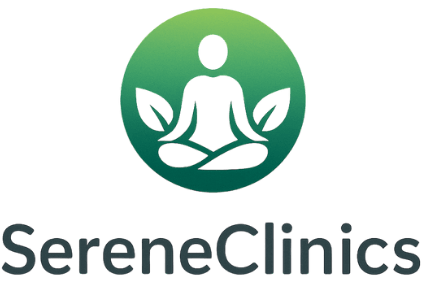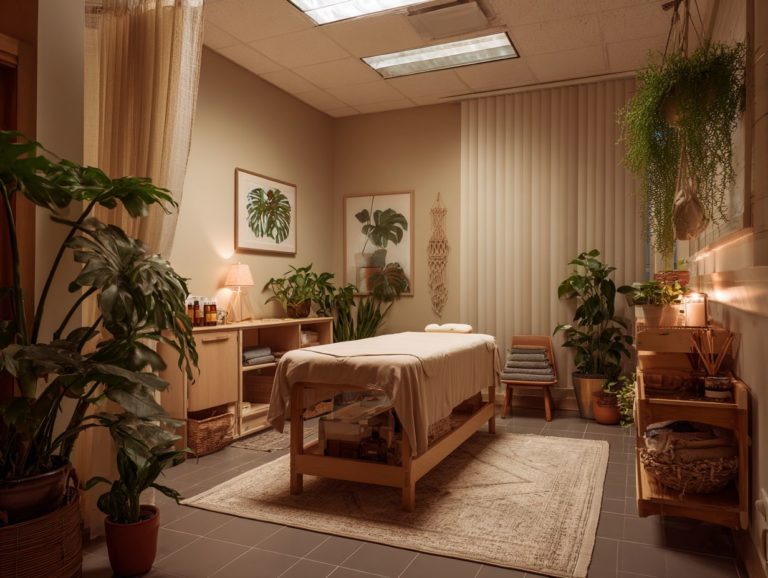Top 5 Holistic Health Centers in North Chicago, Illinois
In the bustling North Chicago area Treating the whole person-body and mind-is becoming more popular as a way to balanced wellness.
Our top five picks:
- Nirvana Naturopathics in Deerfield for acupuncture expertise,
- Greater Good Chiropractic Care in St. Charles for spinal alignment,
- Trinity Holistic Health Center in Lake Bluff for comprehensive therapies,
- The Chicago Integrative Center for Psychology in Lake Bluff, and
- Intervention Arms Medical Center in North Chicago.
Get tips on services, benefits, insurance, and prepping for your first visit.
Key Takeaways:
Contents
- 1 1. Nirvana Naturopathics
- 2 2. Greater Good Chiropractic Care
- 3 3. Trinity Health Center on the North Shore
- 4 4. The Chicago Integrative Center For Psychology
- 5 5. Intervention Arms Medical Center, LLC. – North Chicago
- 6 What Should You Think About When Picking a Whole Health Center?
- 6.1 What Services Do These Centers Typically Offer?
- 6.2 How Do Whole-Person Health Centers Differ from Standard Medicine?
- 6.3 What Are the Benefits of Whole-Person Health for People in the Community?
- 6.4 Are There Any Insurance or Accessibility Considerations?
- 6.5 How Can You Get Ready for Your First Trip to a Natural Health Center?
1. Nirvana Naturopathics
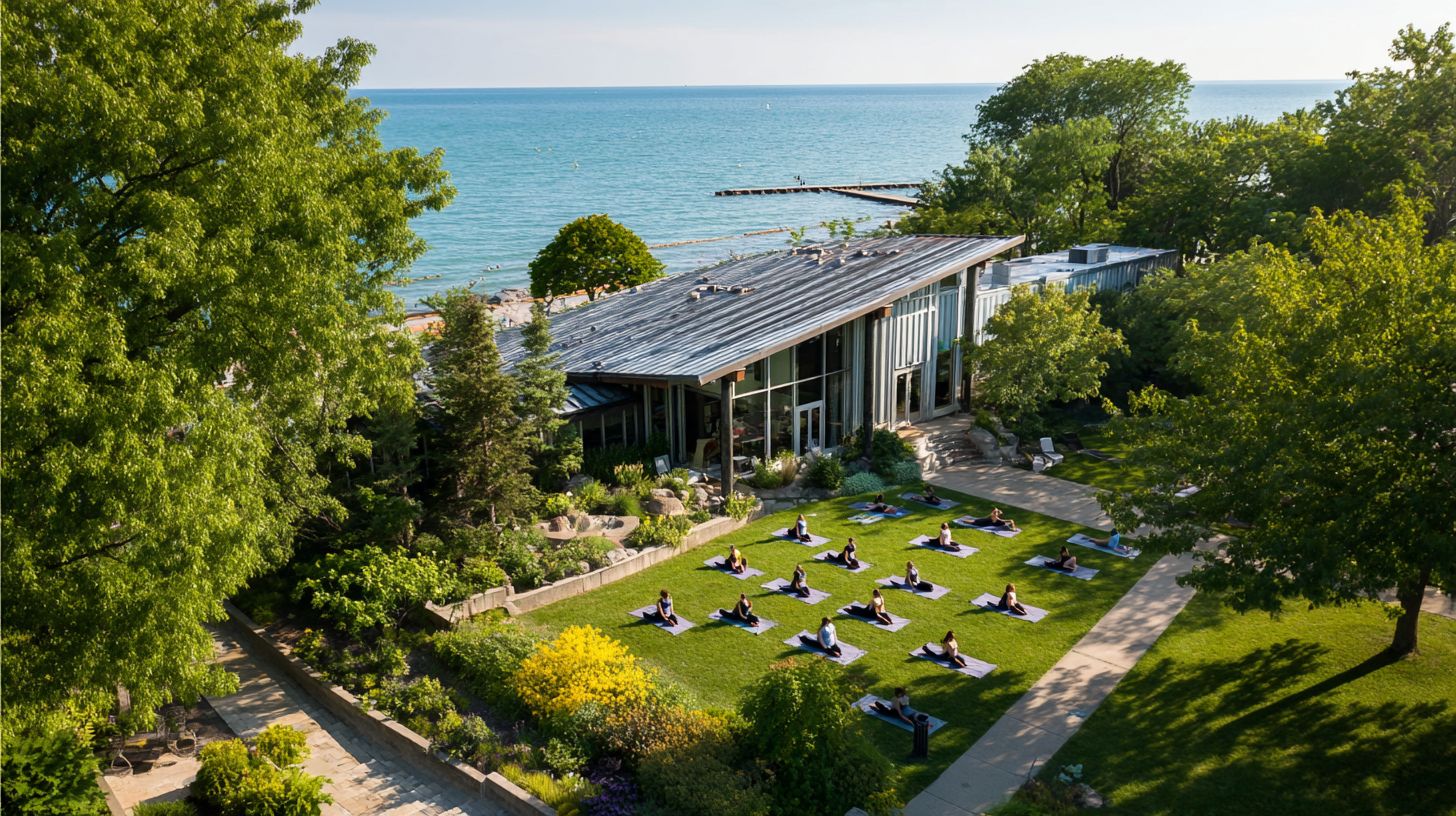
Located in Logan Square, Chicago, Nirvana Naturopathics is a popular place for people who want natural healing options like acupuncture and herbal medicine.
This center stands out for women’s health. It combines alternative medicine with custom plans to treat hormonal imbalances and menopause symptoms.
You can get treatments such as specially made herbal blends to help with fertility or acupuncture sessions that reduce menstrual pain. Studies from the National Institutes of Health show that acupuncture cuts dysmenorrhea by up to 50% in clinical trials.
It’s a good choice for people in the area because the providers spend time learning your specific requirements and create custom plans that avoid drugs.
If you’re recovering after childbirth or using yoga therapies to ease stress, the welcoming atmosphere here creates a sense of shared support, which helps you take up natural health practices close to home.
2. Greater Good Chiropractic Care
Greater Good Chiropractic Care blends hands-on adjustments with massage and movement classes to help patients move better and feel stronger.
These movement classes include yoga sessions that stretch and strengthen muscles. They support spinal alignment, which people need when moving through Chicago’s busy streets.
Tai chi provides slow, flowing movements that improve balance and lower stress. It’s a good fit for people who manage work and city living.
Qi gong practices focus on breath and energy flow, aiding in better posture and vitality amid urban demands.
For pregnant women, prenatal care includes specific changes and helpful exercises to reduce discomfort and support a healthier pregnancy.
These treatments straighten your body and improve everyday health, so you can handle Chicago’s difficulties with fresh vigor and grace.
3. Trinity Health Center on the North Shore
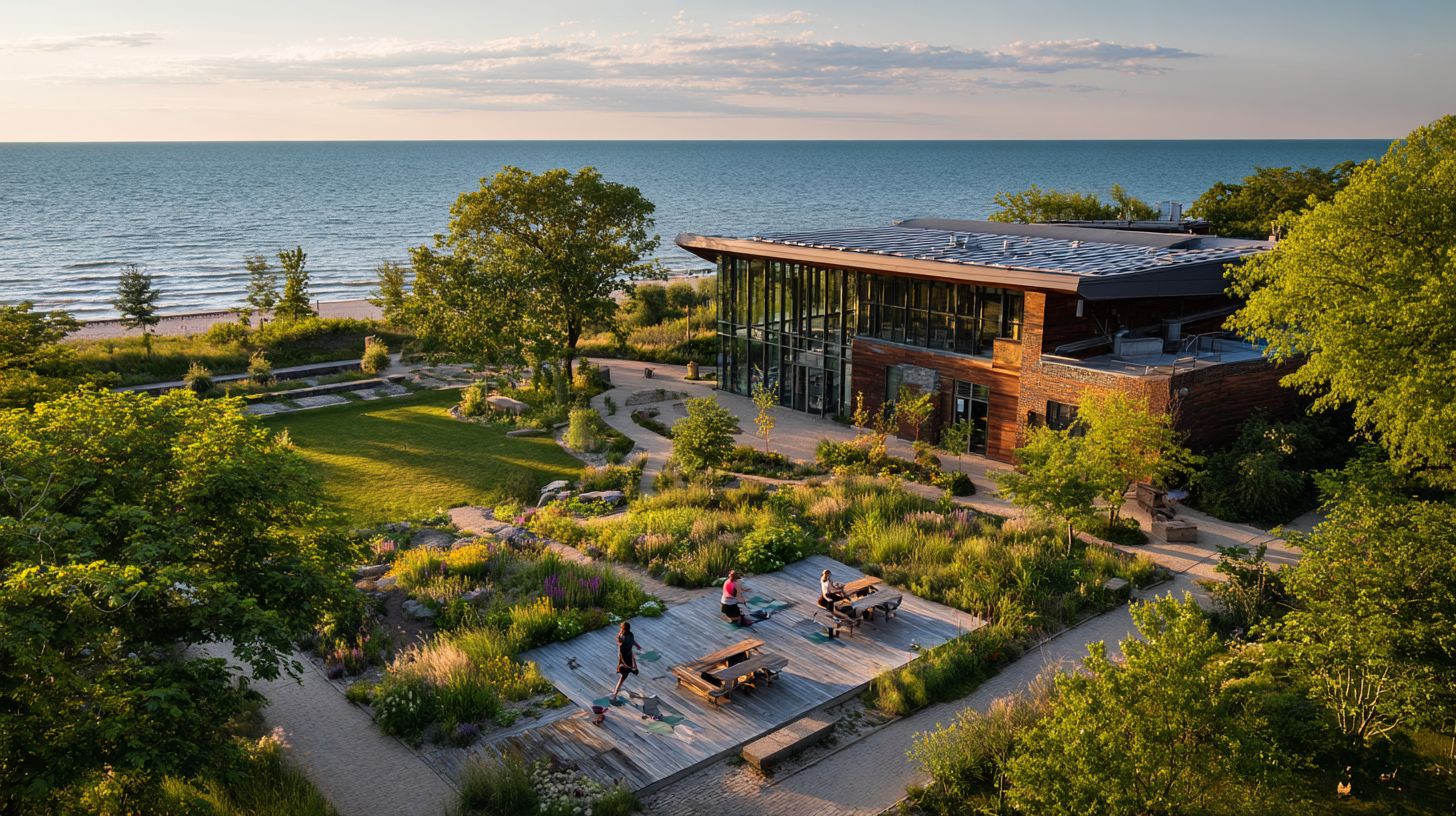
The Trinity Health Center on the North Shore offers a calm place for psychotherapy talks and meditation practices that soothe the mind.
Beyond these, one can immerse in sound baths where gentle vibrations from singing bowls and gongs wash away stress, fostering deep relaxation as supported by a 2016 study in the Journal of Evidence-Based Complementary & Alternative Medicine, which found such therapies reduce anxiety by 25%.
Day retreats invite you to unplug in nature, blending guided hikes with mindfulness exercises that rejuvenate the spirit in the center’s tranquil gardens.
Workshops on making natural products let people create their own herbal balms and essential oil blends, which supports self-care with direct, hands-on work.
Aromatherapy services, drawing from ancient practices validated by the National Center for Complementary and Integrative Health, envelop you in soothing scents during massages, easing tension and enhancing emotional well-being amid the serene coastal backdrop.
4. The Chicago Integrative Center For Psychology
The Chicago Integrative Center For Psychology mixes talk therapy with creative outlets like music therapy and guided imagery to tackle mental health head-on.
It continues this complete method with ongoing workshops and events that build connections and personal growth for people in busy cities.
People join mindfulness meditation sessions and learn methods that a 2014 Harvard study showed can lower stress hormones such as cortisol by as much as 20% in city residents.
Mind-body therapies, such as yoga and tai chi, complement these by enhancing emotional regulation, as supported by the American Psychological Association’s research linking them to lower anxiety levels.
Nutrition and diet advice completes the services. Plans focus on foods high in omega-3 to support brain health and mental strength, based on NIH guidelines about how diet affects mood.
These tools give city residents practical ways to handle everyday stresses, helping them develop long-term emotional strength right in central Chicago.
5. Intervention Arms Medical Center, LLC. – North Chicago
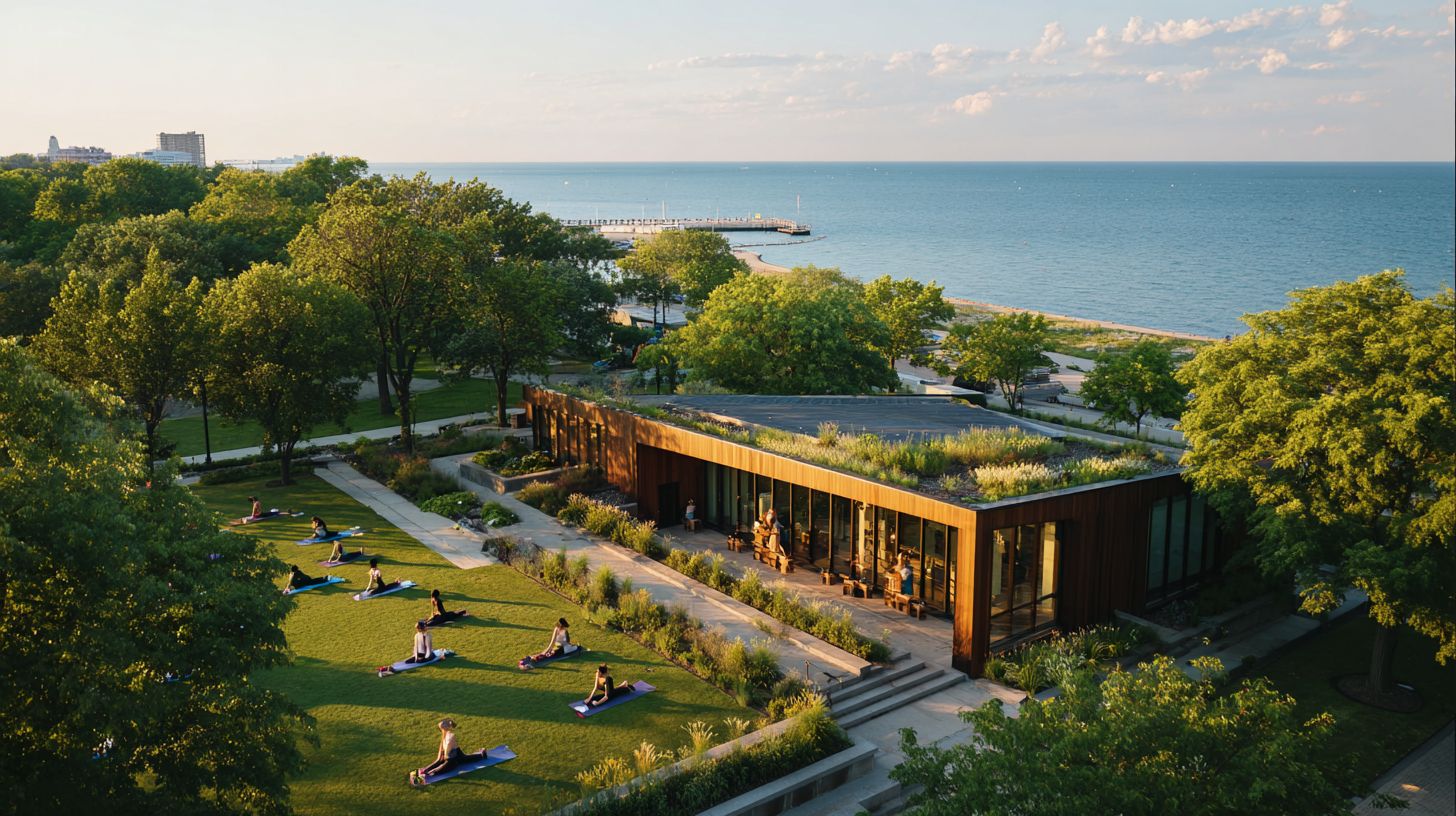
In North Chicago, Intervention Arms Medical Center provides targeted support for substance use disorder through art therapy and equine therapy experiences.
Patients starting recovery go through a detox process that starts with withdrawal under a doctor’s watch to keep them safe and comfortable. They cut back on withdrawal symptoms by checking each patient one by one and using drugs to help.
Once stabilized, inpatient programs offer a structured 30- to 90-day stay in a serene environment, where residents engage in group counseling, cognitive behavioral therapy, and mindfulness practices to rebuild mental resilience.
For those ready to transition home, outpatient options provide flexible scheduling with weekly therapy sessions, relapse prevention education, and family support workshops. What makes their method different is combining elements like yoga, nutrition advice, and outdoor activities.
These help people recover emotionally and create long-term changes in daily habits.
Research from the National Institute on Drug Abuse shows that these full programs increase chances of staying sober long-term by treating the whole person, not just the addiction.
What Should You Think About When Picking a Whole Health Center?
Picking the right health center in Chicago that treats the whole person means checking options that match your needs, from whole-person treatment methods to additional medicine that works with daily life. Look for places prioritizing health equity so everyone, regardless of background, gets fair access to care.
Check if they offer continuing education for staff like LMTs to keep services fresh and effective. Consider location ease, like parking transportation options, and how integrative health models address whole-person wellness, not just symptoms.
This choice can change your wellness experience in a city packed with wellness places. (102 words)
Check their range of services, such as acupuncture and herbal remedies, yoga classes, and nutritional counseling, to see if they meet different wellness needs. Our certified professionals attend workshops from organizations like the National Certification Board for Therapeutic Massage & Bodywork to keep their knowledge current.
Their community impact often extends to free workshops or partnerships with local nonprofits, fostering health equity in underserved areas.
A 2022 study by the National Institutes of Health shows that integrative health practices can lower chronic pain by up to 30%. These centers are important for long-term recovery.
By choosing one that focuses on these elements, you create a personal way to vitality. Explore top holistic health centers in Evanston, Illinois, a key suburb in the Chicago area, for nearby options that align with these principles.
What Services Do These Centers Typically Offer?
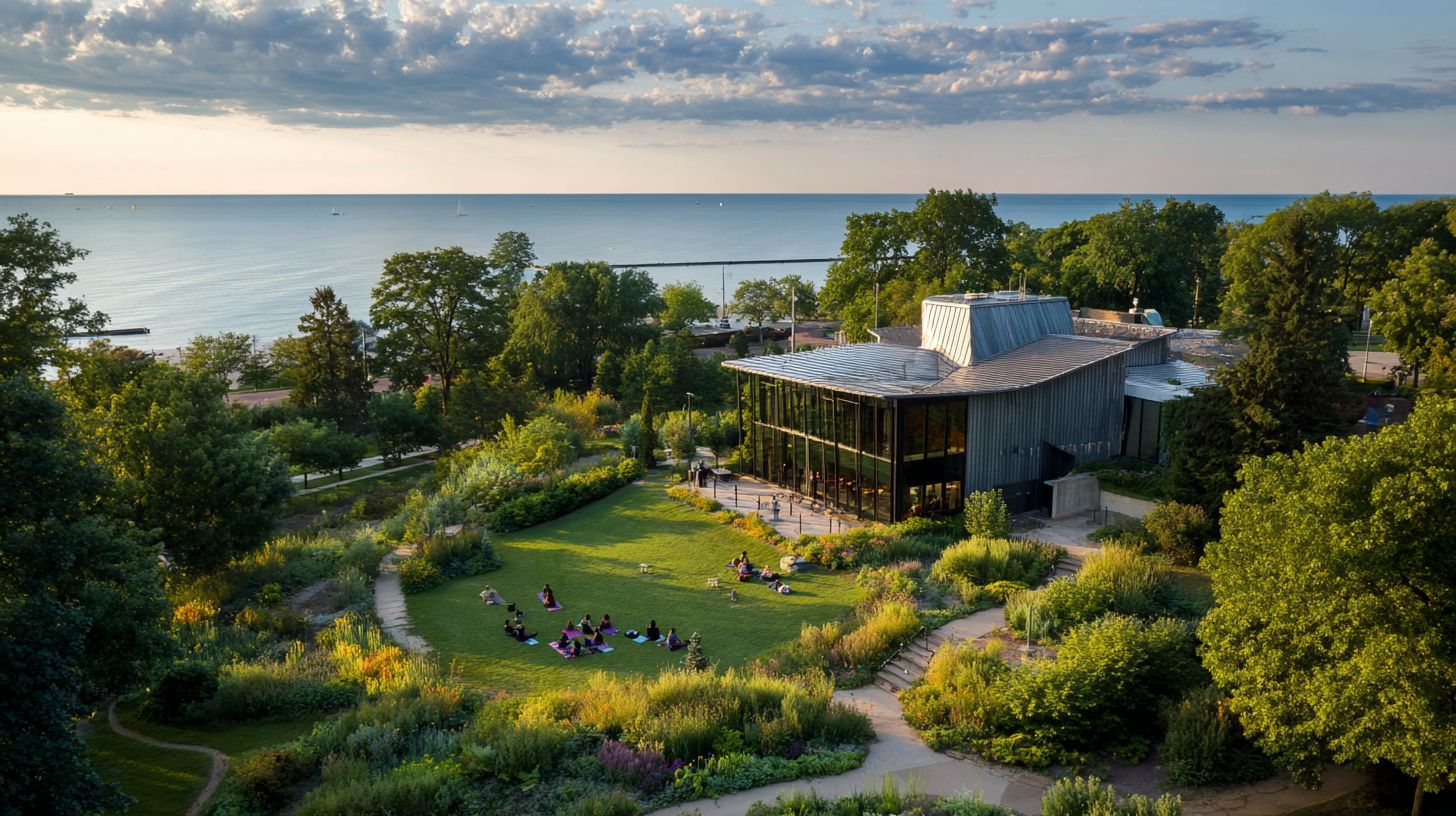
Health centers near Chicago often include childbirth help and breastfeeding help for new parents.
These centers do more than help families at birth. They provide care for different parts of life, mixing old knowledge with today’s methods.
For example, they provide tarot readings to help people facing job changes or personal problems, so you can find your own inner directions ahead.
People turn to lymph and vagal practices as regular sessions to reduce stress and strengthen the immune system, especially during midlife changes when energy levels drop. Places like the Wellness House offer programs such as cooking classes for cancer patients and survivors.
These classes teach healthy, tasty recipes that help with recovery and overall health.
These programs fit all life stages. Young adults use mindfulness workshops to manage anxiety, while seniors practice gentle yoga to improve mobility.
They provide complete support that seems individual and easy to reach, building health for different groups.
How Do Whole-Person Health Centers Differ from Standard Medicine?
Standard medical care usually treats symptoms with quick fixes. Health centers that address the whole body fix the basic causes of illness and stop issues before they start, just as Mile Square Health Center supports local residents.
This approach draws from the federal Health Center Program under the U.S. Public Health Service, which funds community-based care to address disparities, as evidenced by a 2022 HRSA report showing improved chronic disease management through preventive services.
It connects closely with the University of Illinois and draws on the university’s academic knowledge in integrative medicine. The university’s Board of Trustees supervises this to maintain quality and support new ideas.
The State of Illinois bolsters this with grants under the Illinois Department of Public Health, promoting equitable access.
Patients receive individual plans that help with lasting recovery. These plans differ from treatments that only respond to problems, as they provide people with knowledge and help for daily habits.
Research in the Journal of Alternative and Complementary Medicine from 2019 shows that these methods lower hospital readmissions by 25% over five years.
What Are the Benefits of Whole-Person Health for People in the Community?
People in Chicago get lower stress and more energy from treatments fit to their needs, done by professionals like nurse midwives.
Imagine tapping into these advantages without leaving the city, where one can connect with community-driven nonprofits under the Internal Revenue Code, fostering stronger local bonds and accessible care.
Working with organizations like Northwestern Medicine and the Osher Center for Integrative Health improves the experience by blending established medical practices with traditional practices.
Core services such as acupuncture, which a 2018 meta-analysis in the Journal of Pain found effective for chronic pain relief in over 70% of participants, herbal medicine for natural immune support, therapeutic massage to ease muscle tension, and psychotherapy for mental clarity all contribute to sustained everyday vitality.
These choices help people stay balanced in the rush of city life, with options available at nearby facilities. Discover top holistic health centers in Naperville, Illinois, for practical examples of integrating these services locally. They use information from reliable sources like the National Center for Complementary and Integrative Health.
Are There Any Insurance or Accessibility Considerations?
Insurance plans cover complementary therapies in different ways, but many centers accept them for activities like yoga and tai chi classes.
People who want more help can turn to places like Wellness House in Hinsdale, Illinois. It provides programs that are easy to reach and made for cancer patients and survivors.
They provide free or low-cost classes in meditation and nutrition workshops, ensuring financial barriers don’t hinder participation.
Mile Square Health Center in Chicago combines whole-person care with routine medical services. It charges fees that adjust according to income to make care fair for everyone.
A standout feature is their cooking for cancer program, where participants learn to prepare nutrient-rich meals that combat treatment side effects-backed by studies from the American Cancer Society showing how such dietary interventions can improve quality of life (Journal of Clinical Oncology, 2020).
To make visits easier, both centers offer ample free parking and partnerships with rideshare services for discounted transportation. If you can’t drive, bus stops are close by, and staff can help book rides that work for disabilities, so you can concentrate on recovery instead of travel details.
How Can You Get Ready for Your First Trip to a Natural Health Center?
Prepare for your first visit to the wellness center by writing down your health history and goals, especially if you are dealing with Substance Use Disorder.
Start by jotting down any past diagnoses, medications, or therapies you’ve tried, as this helps practitioners tailor complementary approaches like mindfulness or acupuncture that align with DSM-5 criteria for Substance Use Disorder. The American Psychiatric Association says that adding these methods to standard recovery improves it by dealing with the links between mind and body.
For instance, the University of Illinois at Chicago’s integrative health programs emphasize journaling symptoms to set realistic expectations, while Northwestern Medicine Osher Center recommends reflecting on personal triggers ahead of time. Events like Ari Merretazon’s wellness workshops or Dead Presidents recovery summits show the value of preparing questions on evidence-based Complementary and Alternative Medicine options.
This practice leads to informed care that helps maintain long-term sobriety and does not replace standard treatments.

Sheetal Sharda has a background in CS. She got an interest in Holistic living back in 2018, and has since started exploring more into Naturapathy, Holistic Living, Yoga, and more. She got inspired to start SereneClinics to help people find reliable centers across the world.
